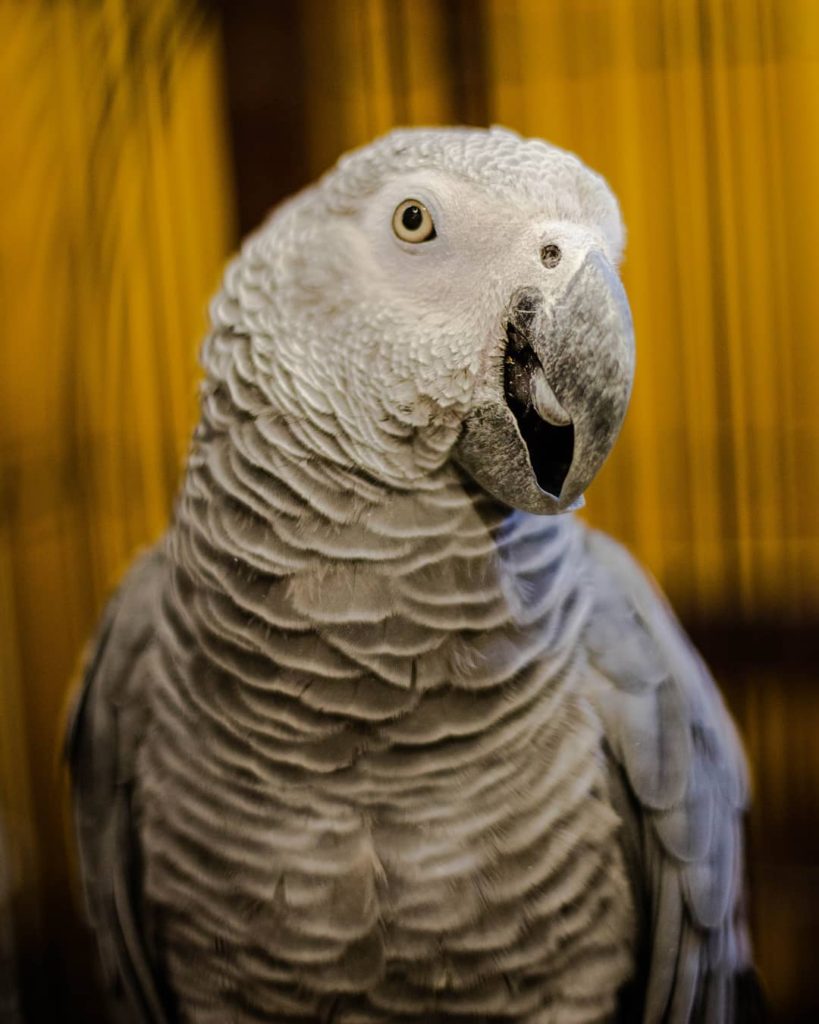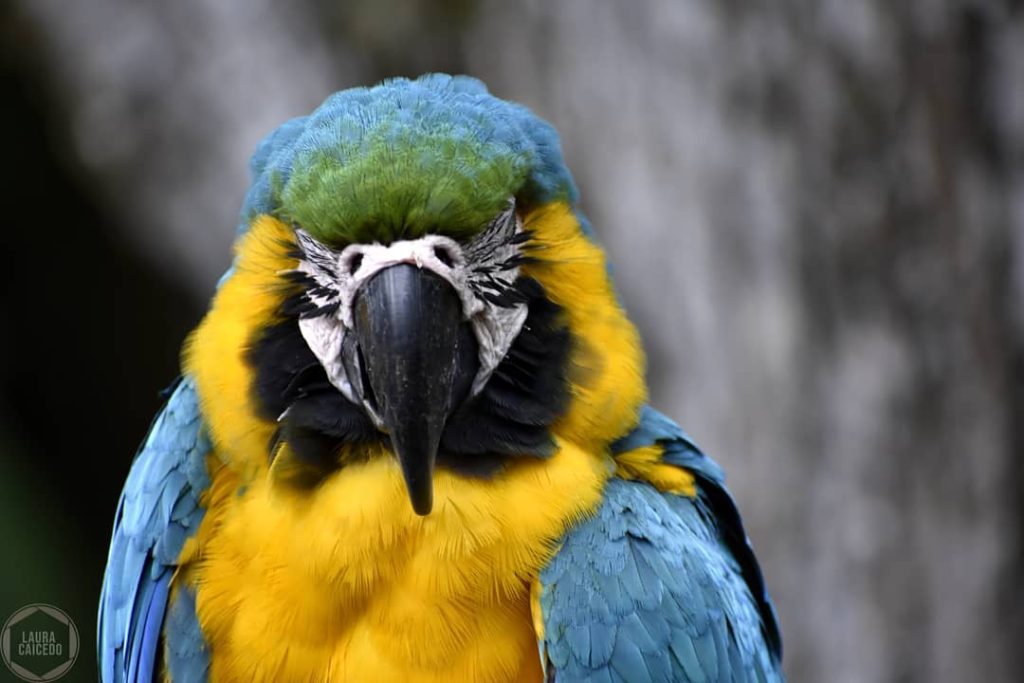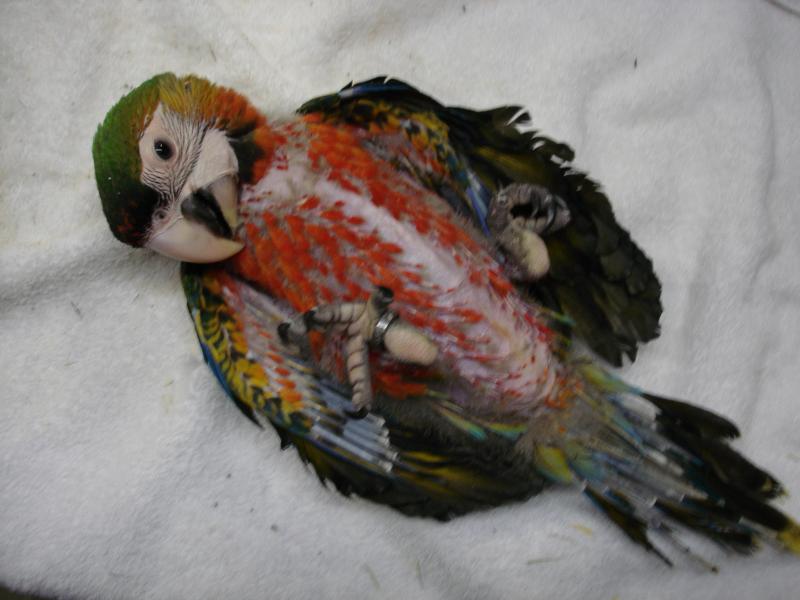Early indicators of disease in birds are subtle and readily overlooked. In the wild, a sick bird will conceal signs of disease to avoid predation. This behavior is harmful to companion birds since they can be ill for a long time before the owner notices the signs.
A bird that looks to die abruptly has most likely been ill for some time, with the caretaker being oblivious to the subtle symptoms. As a result, pet bird owners should become familiar with early indicators of disease in birds and keep track of any changes in their pet’s usual routine. Early detection of sickness provides for faster medical treatment and a better outcome for your sick pet.
Evaluation of Droppings
A change in your bird’s droppings may indicate a change in its health. Always place paper towels or newspapers beneath your bird’s cage and perches to make it easier to observe the droppings. Replace the paper every day to record the number, volume, color, and consistency of the droppings.
Normal Droppings
A bird’s normal droppings will vary in appearance depending on its diet and what type of bird it is. Most parrots will have formed feces of a dull green color accompanied by varying amounts of clear urine and white urine. Eating berries or foods with food coloring may temporarily change the color of your bird’s feces, and a diet high in moist foods will increase urine production.
Abnormal Droppings
Reduced total number or volume of droppings.
• Urates (the opaque fraction of urine) alter color from white to green or yellow. • Diarrhea (liquid, unformed feces)
• Increase in the urine portion (polyuria) without eating moist foods. • Blood in the droppings.
• A strong stench in the droppings (apart from the initial morning dropping)
Looser feces can be natural in some situations. Birds that consume nectar, such as lories and lorikeets, will produce more liquid excrement. Birds producing eggs and baby birds on hand-feeding formulas typically have looser stools. Similarly, a bird’s first void in the morning is typically larger and less developed than those later in the day. Nervousness or stress can induce temporary loose droppings, which should resolve as the stressor is removed.
We propose that you examine numerous droppings under normal conditions before becoming alarmed.
Monitoring Weight
Monitoring weight is one method for detecting illnesses early. We recommend that all bird owners use an electric gram scale and weigh their birds weekly. Rapid weight loss or growth is considered abnormal. If you detect a large fluctuation in your bird’s weight (+/-10%), you should see a veterinarian.

Early Signs of Disease in Birds
The following symptoms indicate the need to see an avian veterinarian.
• Redness, swelling, or loss of feathers around the eyes.
• Crusty substance in or around the nares.
• Stained feathers on the nares (nostrils), face, or vent.
• Flaky skin or beak.
• Overgrowth on the beak or nails
• Changes in vocalization, eating habits, or aggression.
• Broken, bent, plucked, or chewed feathers.
• Unusual or dull feather hues.
• Prolonged molt.
• Lameness or shifting of body weight
• Sores on the bottom of the foot
Signs of Serious Illness
The following indicators may signal a major health concern and veterinary treatment should be sought immediately:
• Blood loss or injury.
• Discharge from the nostrils, eyes, or mouth.
• Difficult breathing or unusual respiratory noises
• Reduced or excessive food or water consumption.
• Loss of weight or general physical condition
• Enlargement or swelling of the body.
• Vomiting, or regurgitation
• A significant decrease in the quantity and frequency of droppings, or a noticeable change in their odor or consistency.
• Reduced vocalization and interest in social contact.
• Fluffed posture and napping more than usual.
• Neurological problems, including seizures.
• Inability to perch.

Heat
The optimal temperature range for most sick birds is 80°-85° Fahrenheit (27°-29° Celsius). A temporary incubator can be created by placing a heating pad along the side or underneath your bird’s cage and covering it with a towel, blanket, or cage cover. Space heaters and heat lamps may also be useful, however they can cause overheating.
Make sure the cage coverings do not touch the heat source and that your bird does not gnaw on any electrical lines.
If the bird begins to breathe rapidly or holds its wings away from its body, the temperature has risen and must be reduced. Avoid using heaters that release fumes or smoke, as they might be more harmful than beneficial.
Emergency First Aid
An unwell bird should be maintained in a warm, quiet place until veterinary care is available. Reduce handling by providing your bird with easily accessible food and water.
Food/Water
Sick birds should continue to eat and drink unless they are regurgitating or vomiting. Place food and water near where your bird is perched or lying. If your pet is friendly, serve your favorite dishes by hand. A syringe or eye dropper can be used to administer an electrolyte solution, such as warmed sports or pediatric electrolyte beverages, drop by drop.
Mistakes to Avoid
• Do not try to drop food or drinks into a bird’s mouth if it is unable to swallow.
• Do not administer drugs or cures that were not explicitly prescribed for your bird.
• Do not wait to see how the bird is tomorrow.
• Don’t wait to contact your avian veterinarian!
Postmortem Examination
If your bird has died and you want to know what happened, keep the carcass chilled (not frozen) before transporting it to an avian doctor. Your veterinarian can run a variety of tests on the bird to assist in determining the cause of death.
Knowing what did and did not cause your pet’s death is critical for protecting the health and safety of your family and other birds in your house.
Have a Relationship with your Avian Veterinarian
It is extremely beneficial to establish a relationship with an avian veterinarian before your bird becomes ill. This will provide you and the doctor with vital baseline information such as how much the bird typically weighs, how the bird behaves at the veterinarian’s office, and what test results show when the bird is healthy.
It is also a good idea to know which local emergency clinics would see birds and display their phone numbers for family and friends.
In Closing…
Bringing your bird to an avian veterinarian for regular check-ups, noting small changes in your bird’s behavior, and acting immediately when you discover signs of sickness are all critical elements in ensuring that your bird has a long and healthy life.


My wife and I have had a pet parrot for almost five months now, and we are worried that he is sick because he has been acting very strange lately. I appreciate you helping us to understand that if a bird is sick, it will start losing feathers around its eyes. My wife and I will be sure to schedule an appointment with a veterinarian as soon as possible.